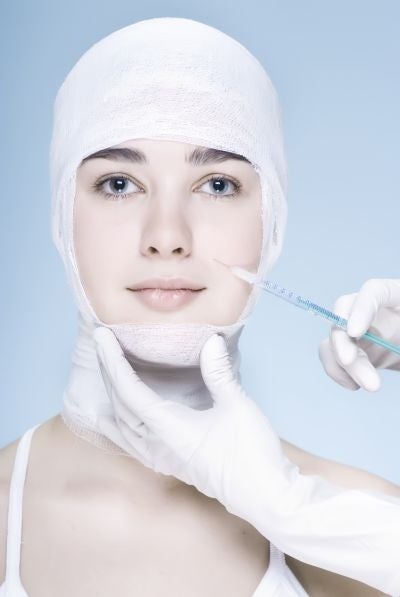Your support helps us to tell the story
From reproductive rights to climate change to Big Tech, The Independent is on the ground when the story is developing. Whether it's investigating the financials of Elon Musk's pro-Trump PAC or producing our latest documentary, 'The A Word', which shines a light on the American women fighting for reproductive rights, we know how important it is to parse out the facts from the messaging.
At such a critical moment in US history, we need reporters on the ground. Your donation allows us to keep sending journalists to speak to both sides of the story.
The Independent is trusted by Americans across the entire political spectrum. And unlike many other quality news outlets, we choose not to lock Americans out of our reporting and analysis with paywalls. We believe quality journalism should be available to everyone, paid for by those who can afford it.
Your support makes all the difference.The ever-popular wrinkle smoother Botox may have met its match with antiwrinkle injectable Dysport. A controversial new study, published earlier this week, suggests that Dysport, also known as Reloxin, could do a better job at smoothing out crow's feet than Botox.
The two drugs faced off in a study in San Francisco with one drug injected on the right side of subjects' faces and the other drug injected on their left side. Researchers report that crow's feet on the Dysport side looked smoother, and two-thirds of the patients preferred the Dysport side as well. Neither the researchers nor the patients knew which side received which treatment. More than 90 people participated in the study, and subjects' average age was 54.
More studies need to be conducted to determine how Dysport holds up over time as compared to Botox. Previous studies have shown that both products are equally effective at treating wrinkles between the eyebrows.
Botox and Dysport, both approved by the US Food and Drug Administration, contain chemical variations of botulinum toxin and both work the same way to block nerve signals to the muscles, thus "relaxing" them. Dysport, approved in the US in 2009, has been used in Europe to treat wrinkles for the last 10 years.
According the companies' websites, both products may cause serious side effects, including problems swallowing, breathing, or talking.
The study was published on June 20 in the journal Archives of Facial Plastic Surger y.

Join our commenting forum
Join thought-provoking conversations, follow other Independent readers and see their replies
Comments